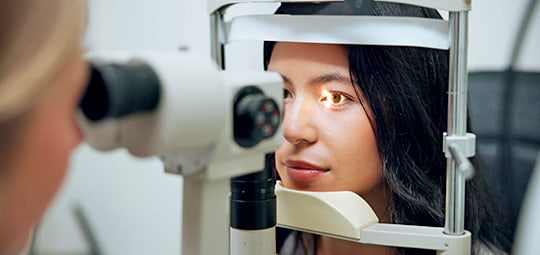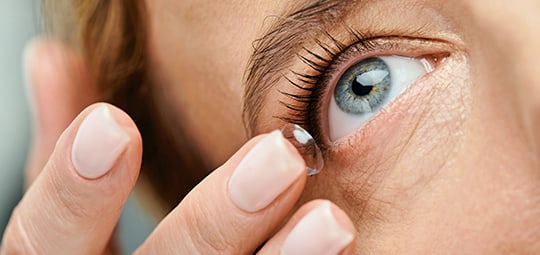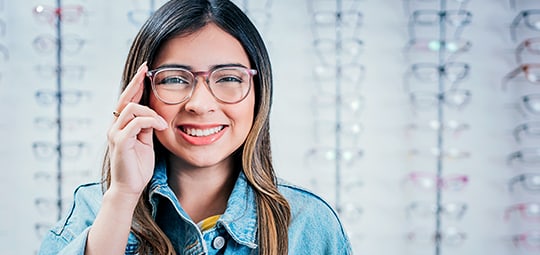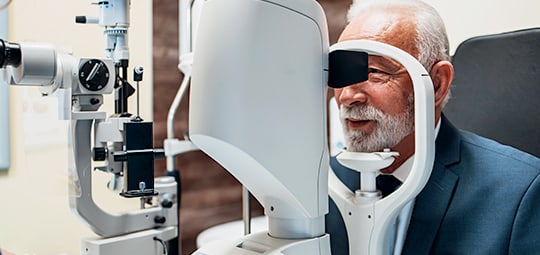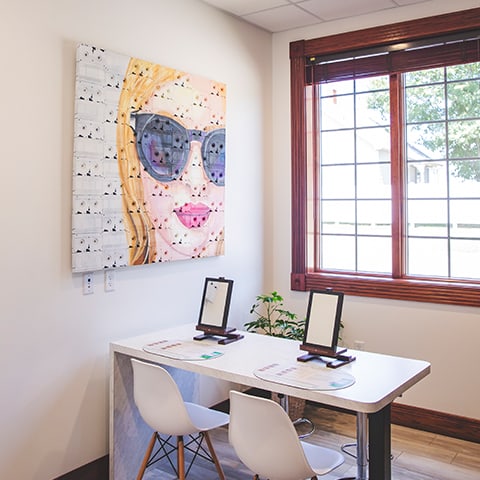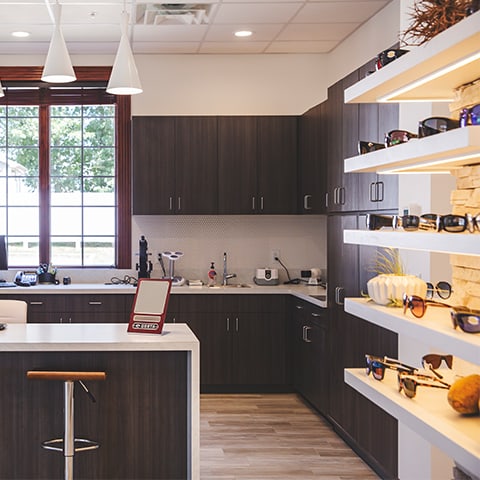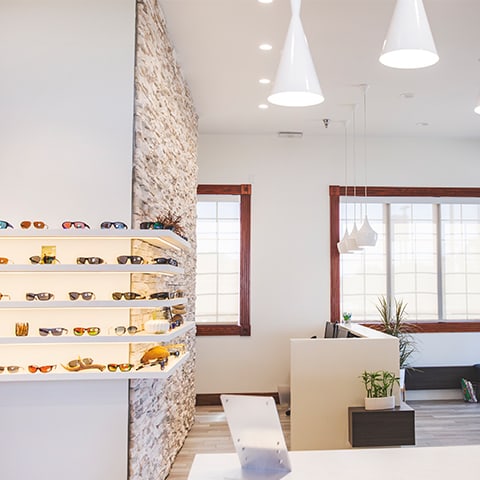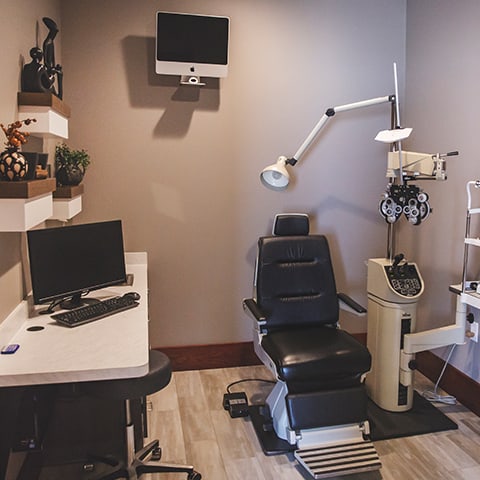Focusing on Your Family
It’s never too early to focus on your children’s eye health and vision. Their sense of sight is important at every age and every stage of development.
It’s common for kids to be nervous for their first eye exam. Our optometrists are experienced with children and can put them at ease. Many kids even think their eye exams are fun! And, if your child does need glasses, we offer a wide selection of colors and styles that will make them smile—in durable materials that will make you smile, too.
Book their appointment today to help set them up for a lifetime of healthy vision.
Request AppointmentWhen Do Children Need Eye Exams?
The American Optometric Association recommends that children have exams at the following intervals:
- A comprehensive exam to establish a baseline between the ages of 6 and 12 months
- Another comprehensive exam as they grow and develop between the ages of 3 and 5
- Annual, comprehensive exams starting before 1st grade and continuing until adulthood
Proper vision can help children succeed in life and academics. Beyond just seeing what’s in front of them at school, visual skills are needed for social, cognitive, and motor skill development.
Book your child’s eye exam today!
Request AppointmentValuable Visual Skills
Children aren’t born with the visual skills they need—they develop them over time, just like they develop the ability to walk and talk.
Good visual skills are essential to learning. Approximately 80% of what children learn happens through their vision. Whether it’s reading, interacting with other kids, throwing a ball around outside, or seeing what the teacher writes on the board, eyesight is involved.
If you want to set them up for success, it’s essential that visual skills are developing normally. Children who start school with undiagnosed vision problems may struggle to keep up in class. They may be misdiagnosed with ADHD or another behavioral disorder.
Undiagnosed vision problems can also lead to:
- Learning at a slower rate than their peers
- Behavioral and disciplinary problems
- Higher risk of dropping out of school
Stages of Sight
There are many milestones in a baby’s visual progression. Here’s what to expect at some critical stages:
- Birth to 4 Months: Your baby’s vision is improving rapidly at this stage. They should be focusing on nearby objects and faces and begin to reach for things.
- 5 to 8 Months: A 3-dimensional view of the world begins to form, as does color vision.
- 9 to 12 Months: Babies begin to grasp objects and can judge distances.
- 1 to 2 Years: Hand-eye coordination and depth perception should be well-developed.
As babies grow and develop, you can help encourage their healthy visual development by playing games with them. Use the classic games like peek-a-boo and patty-cake, provide objects that can be explored with the hands and grasped, and play games that include dropping things and picking them up.
To help your child develop visual skills at the appropriate pace, bring them in for comprehensive eye exams.
How Do I Know if My Child Needs Glasses?
If children are experiencing a vision issue, they are often unable to articulate the problem—they might not even know there is a problem. Unlike adults, children have not established a baseline of what proper vision looks like for them.
Bringing your child for regular eye exams can help establish that baseline. We can detect vision problems early on. Book their appointment today!
Request AppointmentOur Location
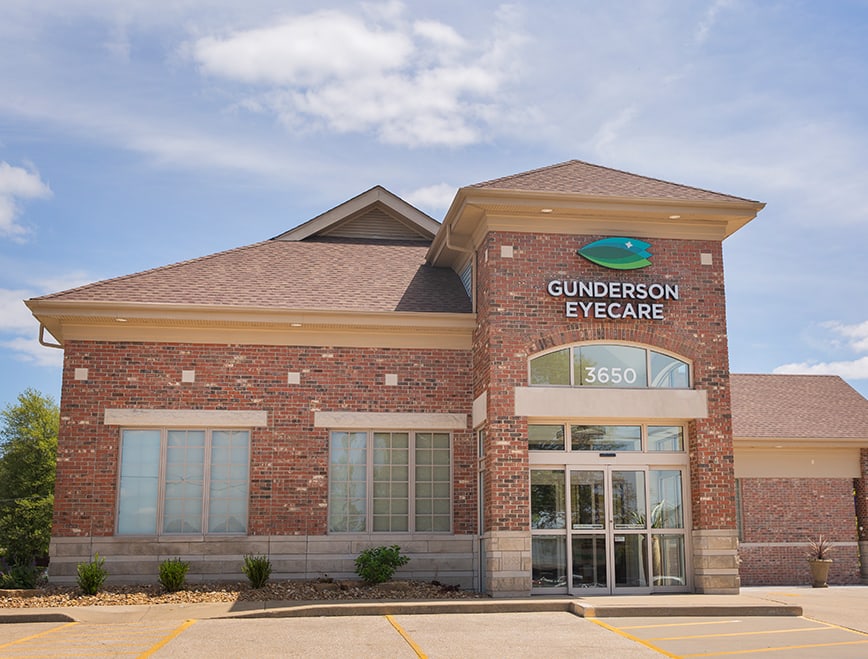
Our Address
- 3650 North Newton St.
- Jasper, IN 47546
Contact Information
- Phone: 812-481-2100
- Email: gunderson.jasper@gmail.com
Hours of Operation
- Monday: 8:00 AM – 5:00 PM
- Tuesday: Closed
- Wednesday: 8:00 AM – 6:00 PM
- Thursday: 7:00 AM – 5:00 PM
- Friday: 8:00 AM – 5:00 PM
- Saturday: Closed
- Sunday: Closed

Our Brands
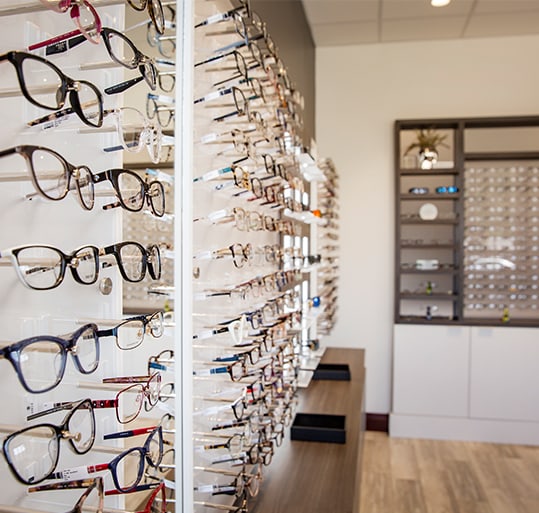

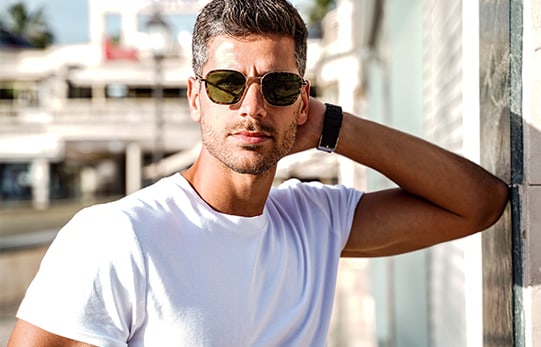
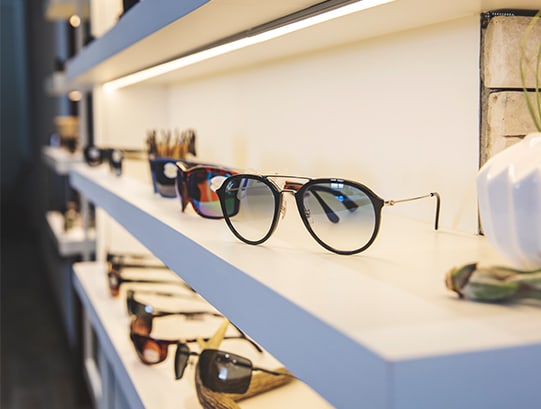




Our Google Reviews
Our Blog
Vision Therapy
Eye Health & DiseaseVision therapy is similar to physical therapy, but instead of a joint or muscle, it works with the eyes and brain. There is a neurological component with this kind of therapy because the eyes are an extension of the brain. Our eyes help make “seeing” possible, but vision is reliant on the eye-brain connection. If […]
Retinal Tears and Detachments
Eye Health & DiseaseRetinal tears and detachments happen when the retina (the inner lining of the eye) is damaged. The retina is a layer of tissue that’s light-sensitive and sends visual information through the optic nerve to the brain. Without it, we are unable to see. A retinal tear is a small break in this inner lining. Retinal […]
Macular Degeneration
Eye Health & DiseaseAge-related macular degeneration, often referred to as AMD, is a medical condition that usually affects older adults. This vision-stealing disease is the result of degeneration to the macula. It results in a loss of vision in the center of the visual field because of the damage to the retina. It occurs in dry and wet […]
Vision Therapy

Vision therapy is similar to physical therapy, but instead of a joint or muscle, it works with the eyes and brain. There is a neurological component with this kind of therapy because the eyes are an extension of the brain. Our eyes help make “seeing” possible, but vision is reliant on the eye-brain connection. If […]
Retinal Tears and Detachments

Retinal tears and detachments happen when the retina (the inner lining of the eye) is damaged. The retina is a layer of tissue that’s light-sensitive and sends visual information through the optic nerve to the brain. Without it, we are unable to see. A retinal tear is a small break in this inner lining. Retinal […]
Macular Degeneration

Age-related macular degeneration, often referred to as AMD, is a medical condition that usually affects older adults. This vision-stealing disease is the result of degeneration to the macula. It results in a loss of vision in the center of the visual field because of the damage to the retina. It occurs in dry and wet […]

